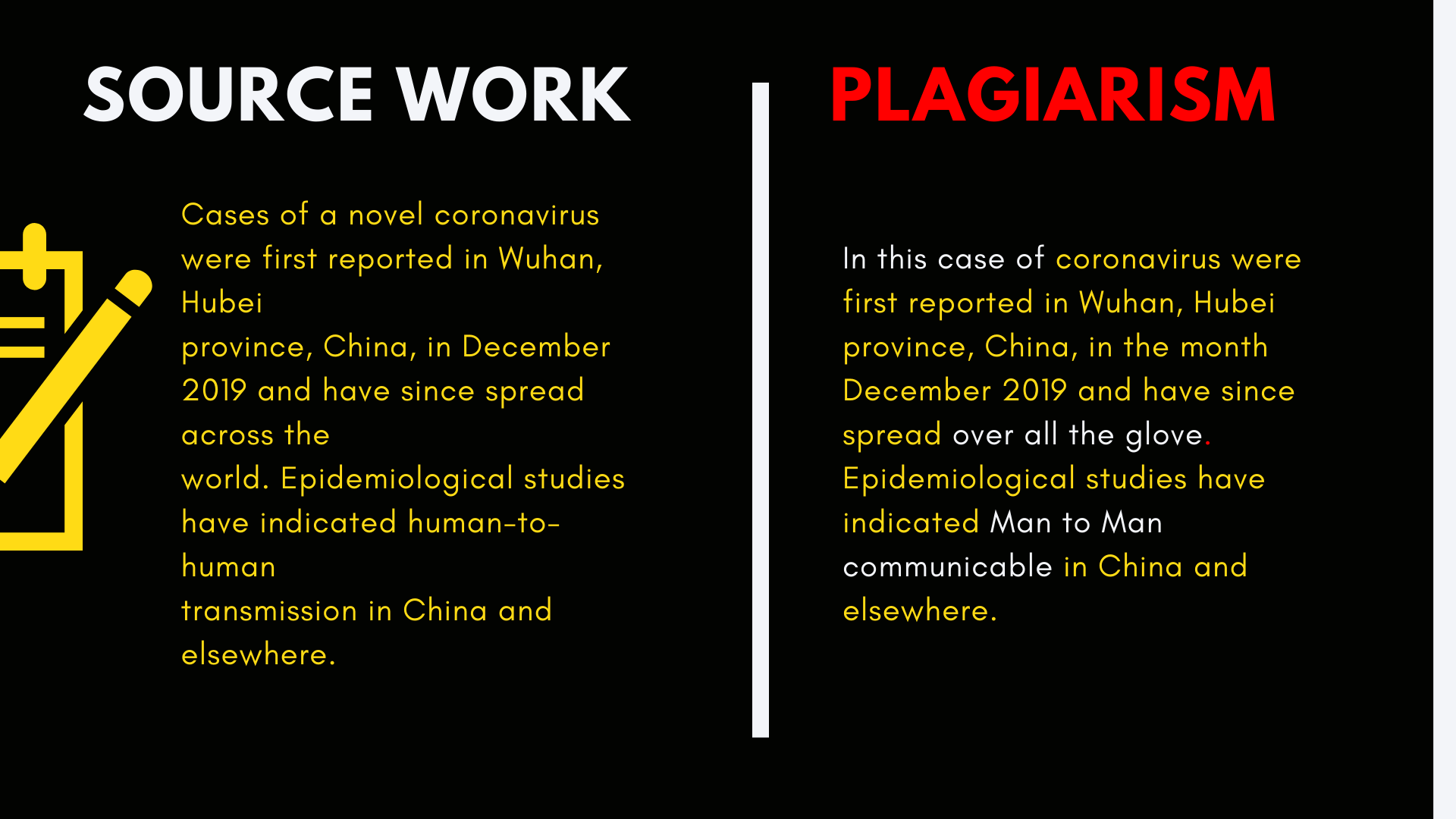Plagiarism is using other people's original work without crediting them as the source. What are the differences between copyright and plagiarism? Plagiarism occurs when you use someone else’s words or ideas without giving credit to the original author. Although they’re often used interchangeably, plagiarism and copyright infringement actually represent two different facets of intellectual property. Web plagiarism is a form of academic misconduct that occurs when you represent the work and/or ideas of another person as your own, original work.
Plagiarism means using someone else’s work without giving them proper credit. Web the biggest difference is that copyright infringement is illegal, while plagiarism is not. Web the difference matters—not least because plagiarism, while dishonest and reprehensible, is not illegal. Web is plagiarism a form of copyright violation?
Web plagiarism, on the other hand, is a harm that is grounded in ethics. Haliza said ip protection encourages industry players to compete in the market confidently, knowing their offerings will not be. Plagiarism is best defined as the unacknowledged use of another person’s work.
How to Avoid Plagiarism and Copyright Infringement in 6 Ways
What is the Difference Between Plagiarism and Copyright Infringement
Types of Plagiarism Plagiarism Library at American National University
10 Types of Plagiarism Every Academic Writer Should Know Updated
Web plagiarism is a form of academic misconduct that occurs when you represent the work and/or ideas of another person as your own, original work. However, there is a difference between these two terms. It is the violation of the exclusive rights granted to a copyright owner, which are reproduction, distribution, performance, and display of the work. Both plagiarism and copyright infringement involve using someone else’s work without permission. Plagiarism means using someone else’s work without giving them proper credit.
Web copyright infringement includes the unauthorized or unlicensed copying of a work subject to copyright. Web copyright infringement is a violation of intellectual property laws. However, there is a difference between these two terms.
Also, One Can Violate Both With One Action.
Haliza said ip protection encourages industry players to compete in the market confidently, knowing their offerings will not be. Web the difference matters—not least because plagiarism, while dishonest and reprehensible, is not illegal. Copyright infringement is using someone else’s work without their consent. The most widespread and also detectable cases of plagiarism occur in writing.
This Blog Post Discusses Additional Differences Between The Two And Provides Examples Of Each Type Of Improper Use.
Web plagiarism, on the other hand, is a harm that is grounded in ethics. Web how is copyright related to plagiarism? Web plagiarism, in turn, is a type of copyright infringement, in which a person presents the original ideas of another person as one’s own or fails to reference the author. In academic writing, plagiarizing involves using words, ideas, or information from a source without citing it correctly.
Plagiarism Is Using Other People's Original Work Without Crediting Them As The Source.
Copyright infringement is the unlawful use of work that is subject to copyright protection in a way that violates the exclusive rights of the copyright holder. All authors should be familiar with the difference between plagiarism and copyright infringement, and how to avoid them. Is plagiarism a form of copyright infringement? However, the act of plagiarism can infringe the intellectual property rights of others and can lead to legal action for ‘copyright infringement’ ‘or ‘trademark infringement’, which in turn can bring about legal charges, significant costs and reputational damage.
It Is The Violation Of The Exclusive Rights Granted To A Copyright Owner, Which Are Reproduction, Distribution, Performance, And Display Of The Work.
Even if a work is properly cited and. Web plagiarism is a form of academic misconduct that occurs when you represent the work and/or ideas of another person as your own, original work. Legal consequences can include fines, damages, and injunctions against further infringement. Both plagiarism and copyright infringement involve using someone else’s work without permission.
In academic writing, plagiarizing involves using words, ideas, or information from a source without citing it correctly. With the absolute explosion of digital content (both production and consumption), plagiarism and copyright infringement have become increasingly intertwined and important. Plagiarism is a form of academic dishonesty that can arise from falsely claiming the ideas and scholarship of another person as your own. ( tech law journal) plagiarism is using someone else's work or ideas without giving proper credit. However, the act of plagiarism can infringe the intellectual property rights of others and can lead to legal action for ‘copyright infringement’ ‘or ‘trademark infringement’, which in turn can bring about legal charges, significant costs and reputational damage.






